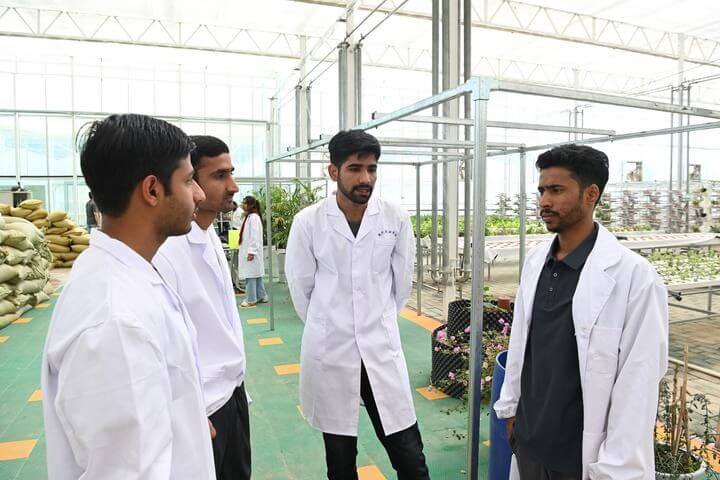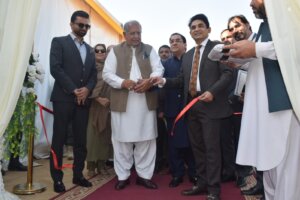Lanzhou (Xinhua News) — A major breakthrough in agricultural education has emerged through China-Pakistan academic collaboration. Under a joint initiative, Bai Li Vocational College in Gansu province, China, and the University of Agriculture Faisalabad (UAF), Pakistan, are training a new generation of Pakistani students in cutting-edge agricultural technologies.
The program follows a “2+1 model”, where students study for two years in Pakistan and one year in China. On June 30, the first batch of students graduated in Shandan County, receiving dual degrees recognized by both China and Pakistan.
Bridging Agricultural Innovation Between Two Nations
According to Wang Yuanlin, an official from Bai Li Vocational College, the goal is to transfer China’s advanced agricultural technologies and management experience to Pakistan and equip youth with scientific knowledge and practical skills in modern agriculture.
Students received in-depth training in seed production, hydroponics (soil-less cultivation), smart agriculture systems, and plant tissue culture. One student, Ameer Hamza, said he learned how tissue culture techniques can significantly increase potato yield by replacing traditional tuber-based cultivation with hybrid nursery production.
From Classroom to Farm: Turning Learning into Practice
Class monitor Khan Hafiz Muhammad Ali Raza expressed his ambition to establish a plant tissue culture laboratory on his family’s 50-acre farm in Pakistan to help local farmers boost crop productivity and combat diseases. He was particularly impressed by automated smart greenhouses in China, noting that most greenhouses in Pakistan are still operated manually. “Agricultural automation is the future,” he said.
Blending Theory, Practice, and Culture
Gao Bolun, a teacher and advisor to international classes at the college, shared that the curriculum combines theory with practical application, enabling students to grasp and apply complex agricultural concepts. Alongside technical education, students were also taught Chinese language, calligraphy, and cultural courses to help them integrate better during their stay.
So far, 124 international students have been trained under this program, with 10 receiving dual certifications. The program is expected to expand into other fields such as elderly care, seed development, and Chinese culinary arts.
Looking Ahead: Educating for a Greener Future
Ali Raza emphasized the need for access to new crop varieties and modern techniques among Pakistani farmers. He expressed his aspiration to return to China for further education, potentially pursuing a PhD, to contribute to Pakistan’s agricultural transformation.






